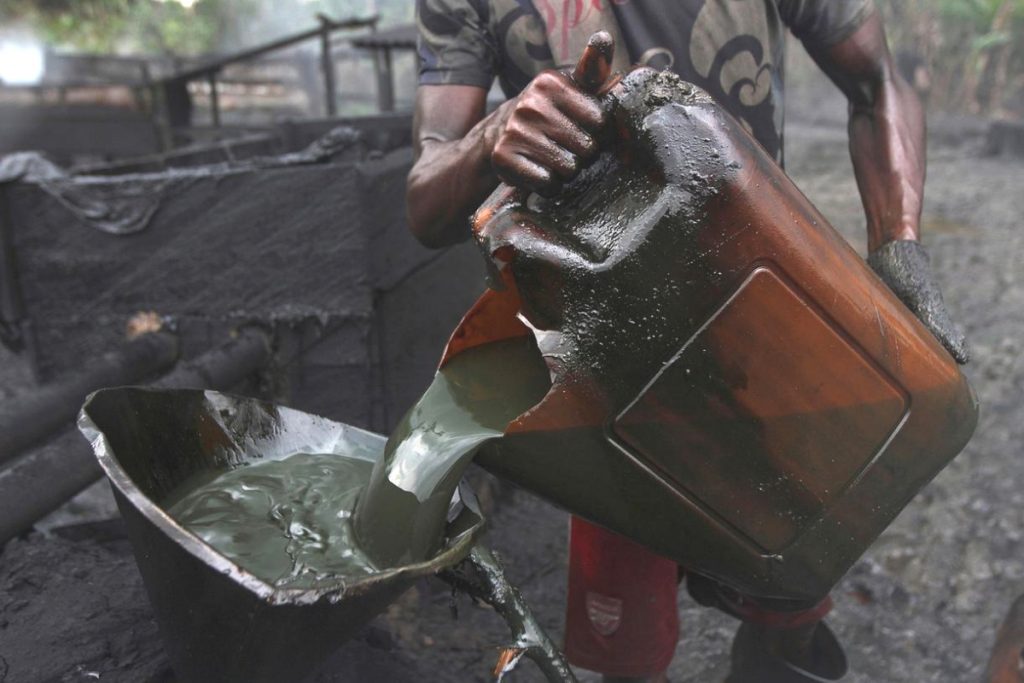The Nigerian government has tried and failed constantly over the years, to curb oil smuggling. Smugglers from the oil-rich Niger Delta region, break into pipelines and tap the crude through rubber hoses up to 2 kilometres long into barrels on-board small crafts.
After mixing the smuggled product with the legitimate product in small quantities of about 10%, they pass it from ship-to-ship into oil tankers set for export to Asia. This sabotage is one of the major factors pushing business interest to the offshore.
Nigeria produces an average of 2.53 million barrels of oil per day. The United Nations Security Council has estimated that Nigeria lost about $2.8 billion of revenue to oil theft in 2017.
See also: Rwanda, OneWeb to Launch Communication Satellite
According to a 2013 Chatham House report, up to 100,000 barrels of crude oil per day ($3 billion to $8 billion a year) is stolen by oil thieves in Nigeria. Shell alone recorded about 128 oil spills caused by oil thieves operating from the delta, in 2018. Shell’s 2018 oil spill number is more than double what it recorded in 2017, and highest since 2014.
The DPR (Department of Petroleum Resources in Nigeria) has partnered with a French data firm Kpler, to fish out the smugglers from the thousands of ships sailing through Nigerian waters. Kpler will do this through a video technology from its office in London.
Kpler will, from a shared WeWork office space in London, zoom in on a lonely vessel deep in the Delta’s river system using satellite data and software. They will also monitor Nigerian waters round-the-clock, log secret journeys by unknown ships, and document changes to ships’ drafts. Kpler will also train the DPR to interpret the algorithm it logs after detailing the movement of ships bearing oil cargoes.
More on TechGist Africa:
- WorldCover Raises $6 million Fund to Provide Insurance for Smallholder Farmers
- Nigeria’s ‘OBTranslate’ to translate 2000 African Languages in Messaging App
- MTN to Sell Off Stake in Jumia
- New Tipping Feature on Uber: Nigerians can now reward Drivers
- Aerobotics Launches Aeroview InField App to Upgrade Farming Techniques
